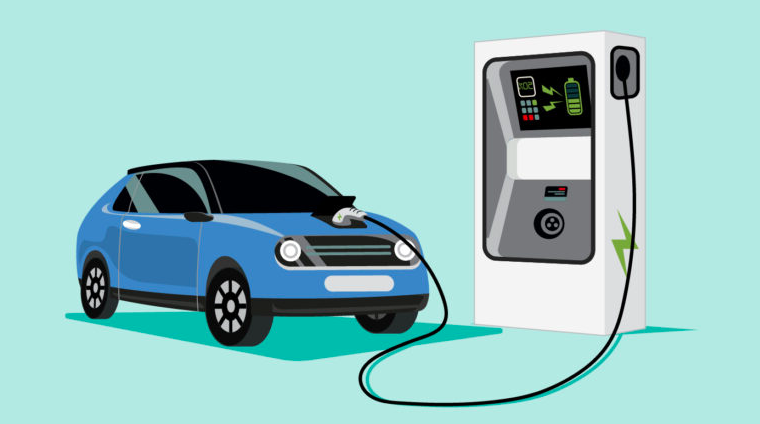With the rising cost of living around the world, it is not new that most drivers are looking for cheaper, smarter alternatives that will not only save them on fuel but also maintenance costs. Electric cars are a game changer for plenty of people. The EV market is here to stay. Indeed, the initial cost might seem steep, but in the long run, you get to slash on fuel costs, and maintenance costs and attain long-term value in terms of longevity. Moreover, you might enjoy a few government incentives here and there to boost your savings. Undoubtedly, this eco-friendly option will save you much; but let’s break down just how much of these savings you will accrue, shall we?
1. Less Pain at the Pump
Picture having to stop at least once or twice on the way to refuel your car when journeying- not very appealing, right? One of the biggest flexes of owning an electric vehicle is the reduced need for and cost of fueling. Compared to a conventional car, an electric car relies partly or wholly on electric power. Whereas conventional cars or gasoline-powered cars may require frequent refueling, electric vehicles utilize electricity that is significantly cheaper per mile. This way, there is a dramatic reduction in fuel costs. Additionally, these cars possess a high efficiency of the electric-drive components leading to better fuel economy.
Still, this may beg the question of exactly how cheap it would be to charge your car as opposed to fueling it. First, you can easily charge your car at home which saves on time as well as cost. Compared to what you would spend on fuel, this charging could probably just cost a fraction of that. Besides, there is increasing availability of low-cost public charging stations designed to save on costs as well as increase convenience.
2. Unlock Extra Savings
Different providers in a bid to encourage the sale of electric cars offer discounts. Governments advocating for eco-friendliness also provide incentives for buyers to encourage the purchase of these cars. Discounts, incentives, rebates, free or subsidized charging infrastructure, fleet discounts, tax credits, and other financial benefits will depend on where you live to allow more people to switch to electricity-powered vehicles. Such financial attractions reduce the upfront cost making electric cars more affordable. Other countries o an extra mile of reducing importation costs of electric cars to make them cheaper compared to fuel-powered cars.
This is a matter of choice after all, but it does not hurt to make use of an opportunity when it arises, does it?
3. Long-term value
We look at the concept of the long-term value of electric cars with respect to financial savings, battery life, and environmental sustainability.
Because electric cars have fewer parts than conventional vehicles, their maintenance cost is cheaper. But let’s dissect this further. An electric car does not require oil changes, has fewer transmission issues and experiences less wear and tears. As such, it is relatively cheaper compared to its counterpart.
Traditionally, electric car batteries underwent degradation over time. Consequently, electric cars depreciated quickly because of shorter battery life. However, improved technology has seen the introduction of modern lithium-ion batteries designed to last beyond 200,000km or 10 years.
In terms of eco-friendliness, an electric car exhibits a lower carbon footprint. These cars do not produce tailpipe emissions thus reducing air pollution as well as the greenhouse effect. On the other end of the spectrum, however, battery production for electric cars does have a negative impact on the environment. The good news is that there are several technological advances in place to ensure battery recycling and sustainable mining practices improving their safety.
4. Cut on Hidden Costs
It is no secret that the initial cost of purchasing an electric car can be very hefty compared to conventional cars. While this may be the case, it is necessary to understand that there are other costs, the not-so-obvious costs that this purchase will save you. Such costs include maintenance costs, fuel costs, emission-related expenses, and resale value. As mentioned, all-electric cars do not require refueling. Once they are charged, you can use them substantially before the need for recharging arises.
There will be reduced expenses in terms of new purchases owing to the longer vehicle lifespan of electric cars. This is because electric car motors typically last longer. Owning an electric car also means no taxes or emission-related expenses that most cities often have in place. These cars do not require periodic emissions testing that a conventional car would sometimes be subjected to.
So, there you have it- These costs may not be so obvious while making the initial purchase but in the long run, you realize that you save on a lot more than you had expected.
5. Explore Cheaper Options
Spiking gas prices as well as the volatility in these prices could be one of the main reasons why car drivers would seek an alternative option. However, the bigger question is: between charging an electric car and fueling a gas-powered car, which one is cheaper?
Ideally, an electric car uses electricity stored in batteries that require charging. On the other hand, gasoline-powered cars as the name suggests, are fueled by burning gasoline. The comparison between these two considers several factors including fuel economy, electricity cost in a specific area, cost of gasoline, and miles driven. The cost of your home’s electricity and what you pay for it determines the cost of charging your car at home. There are public charging stations for electric cars that are mostly independently owned. As such, the pricing is dependent on the owner. You might just be lucky to find free public stations as well.
Take-Away:
Car ownership depends on many factors that are specifically tailored to an individual. However, switching to electric cars offers numerous advantages. They include saving on fuel, getting extra savings, eco-friendliness and cheaper alternatives, and financial benefits like government subsidies, incentives, and reduced road taxes. Furthermore, with technological advancements, enhanced longevity of electric cars is assured, making them suited for long-term ownership.




